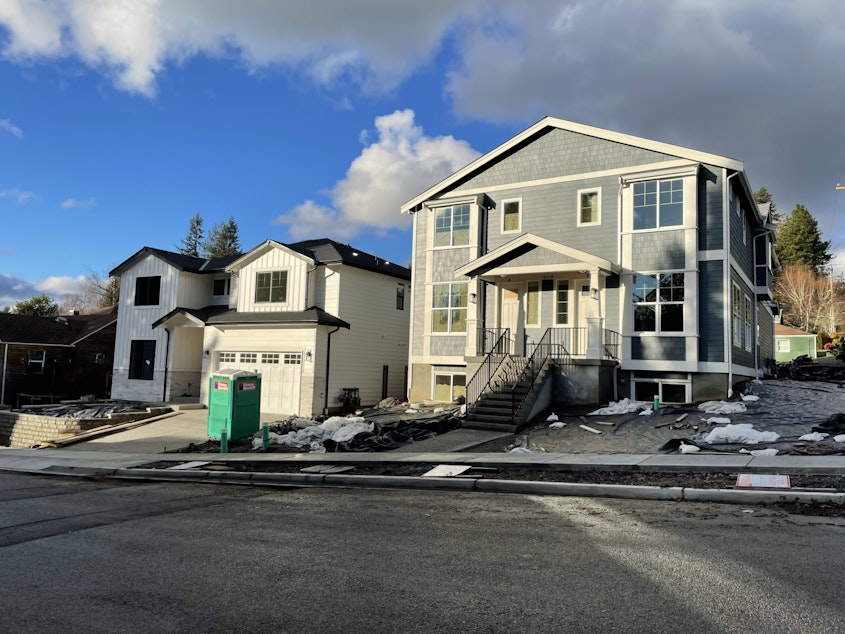Middle housing bill begins with more support in WA Legislature than last time

After fizzling out last year, a bill that would allow denser housing in cities across Washington state begins the legislative session on a stronger footing.
Experts say Washington needs to triple the number of homes being built in order to keep up with the housing shortage, which drives up prices.
The Washington State Legislature has around 16 bills in progress that would create more housing. Former Governor Christine Gregoire led a group of local companies in a study of potential solutions. She said out of all of the bills, the bipartisan “middle housing” bill could have the biggest impact.
On Tuesday, House Bill 1110 got its first hearing.
“As you know, Washington is experiencing a housing shortage, which is culminating in a housing crisis," said Representative Jessica Bateman (D-Olympia), the bill's main sponsor, at the hearing. "This supply imbalance is creating increasingly expensive homes, and increasingly expensive rents that’s impacting our constituents in every corner of the state.”
The bill would remove bans on denser forms of housing like duplexes and fourplexes in cities across the state.
It would allow six-plexes too, if they’re near transit or if two of the homes are affordable.
Sponsored
The bill also would override cities and homeowners associations that try to ban those homes.
Last year, a similar bill failed, thanks in part to opposition from the Association of Washington Cities.
Many issues came up, but the broad disagreement was over local control, or how much authority to give cities to respond to local stress points. For example, if lots of traffic is coming off a certain road, a city might choose not to allow more housing there.
Over the failed bill's evolution, it was watered down, but still couldn't pass. Even with Governor Inslee's enthusiastic backing, lack of vocal support from mayors left some legislators feeling they didn't have the backing of their constituencies.
But between sessions, Bateman and her co-sponsor Andrew Barkis (R-Eatonville) shored up support from a vast array of stakeholders, including environmental groups, employers, housing developers, and state government officials.
Sponsored
In late December and early January, before the legislative session officially began, Bateman said she and others worked to make sure the bill would be heard in the housing committee, rather than the local government committee where it was watered down last year.
Barkis said that when combined with other bills being contemplated in the legislature, the bill would cut in half the time it takes for new homes to get building permits, which is currently around 40 months.
As for the Association of Washington Cities, the group's lobbyist Carl Schroeder recently wrote that the bill would impose more dramatic changes than the one that failed last year.
"This proposal still paints the state with an incredibly broad brush," Schroeder wrote. "Putting the same responsibilities on Othello that are expected of Seattle does not seem appropriate. Importantly, this proposal also does not create new tools, incentives, or revenue to address the housing crises."
But during the hearing, he also signaled his organization was open to negotiation, especially if their concerns were considered.




